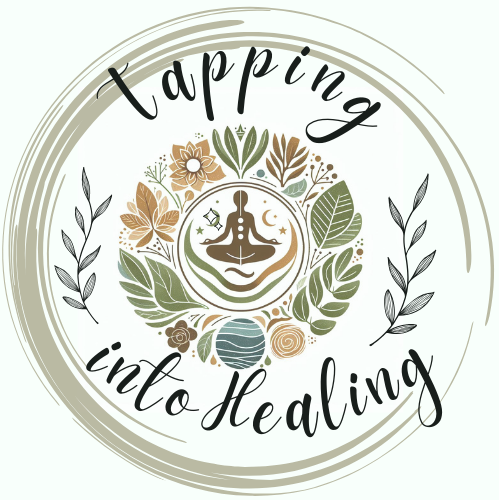What are we talking about when we use the term emotional health? How important is it to be emotionally healthy, what does that look like, and how do we achieve it? Those are just a few of the questions we will look at in the following paragraphs
What Is Emotional Health
Emotional health is measured by self awareness around your emotions, thoughts, and behaviors. Good emotional health encompasses the ability to identify feelings and to manage and regulate them, and to respond in a healthy way. Emotionally healthy individuals recognize how their emotions are affecting their outlook and choices.
They also see the connection between emotions, internal thoughts and feelings, and external behaviors. Those with good emotional health have the ability to identify and be sensitive to others emotional states with empathy and understanding.
Being present and aware of your emotions allows you to handle challenges as they arise, cope with stress, and maintain healthy relationships. It doesn’t mean that there aren’t ups and downs, it just means that you have the resilience to bounce back and keep a generally positive attitude. You are able to express your feelings and thoughts in a way that allows you to deal with them and feel better instead of being run by your emotions.
Emotional health plays an important role in your overall well-being. According to the Mental Health Foundation, emotional health is “a positive state of well-being which enables an individual to be able to function in society and meet the demands of everyday life.”
Characteristics and Traits of Emotionally Healthy Individuals
How do you identify whether you are emotionally healthy? Following are some of the traits and characteristics:
- Emotionally healthy individuals are generally satisfied in their lives and like themselves.
- They seem to handle stress and cope with challenges without becoming completely overwhelmed.
- They are able to find time for leisure and responsibilities, seeking to move towards life balance as much as possible.
- They are able to maintain positive relationships.
- They feel positive about life and are confident in their abilities.
- They are able to set boundaries when they need to and are in touch with their own needs.
- They are aware of their emotional state, and can identify feelings and mood.
- They have good coping strategies for negative emotions.
- They have a sense of gratitude and appreciation.
- They focus on the positive.
- They are flexible and adaptable.
- They take the time to make good decisions, are not overly impulsive.
- Have respect for self and others.
Here’s a short YouTube video that gives a quick overview of 7 signs you are emotionally healthy. If you prefer listening over reading you may enjoy this.
Anyone can experience bad days, rough periods, and still have good emotional wellness. Emotional health is about having the ability to regulate your emotions.
What Impacts Your Emotional Health
There are a lot of different aspects of health. In order to be emotionally healthy it is important to look at overall health. Physical, mental, and spiritual health all have an impact on our emotional health and outlook on life. Taking time for self care is at the top of the list. Having a sense of meaning and purpose, support, good leisure activities, and a healthy diet are all components of being healthy overall.
Following are a list of some of the areas that can add to poor health in general and effect emotional health negatively:
- Lack of sleep, chronic insomnia, poor sleeping habits.
- Chronic physical pain, poor physical health.
- Poor diet.
- Substance abuse.
- Limited social support and/or social interaction.
- Inability to set limits with yourself or others.
- Mental illness.
- Compulsive behaviors.
- People pleasing.
- Not taking time for self care.
This isn’t an all encompassing list, but all the above affect your physical, mental, spiritual, and emotional well-being by making you more vulnerable to stress. Having some of these conditions in your life make it more difficult to manage emotional states, be resilient and bounce back
Signs and Symptoms of Poor Emotional Health
Some of the above conditions may have an adverse impact on your ability to be emotionally healthy, but how do you know if you have poor emotional health?
Some things to look for:
- Constantly looking for what is wrong in the current moment?
- Unaware of your feelings, inability to identify or label emotional state.
- Difficulty understanding how others are feeling, inability to have empathy for others.
- Isolating, avoiding social interaction.
- Hiding/avoiding your feelings, not wanting to deal with yours or their emotions.
- Feelings of low self-esteem, you don’t feel deserving of others love or attention.
- Are you constantly feeling like a victim, not having a sense of control in your life?
- Lashing out in anger – Using argument and intimidation to get your way or to avoid dealing with the real issues at hand.
- Unhealthy coping strategies like substance use, self-harm, emotional eating.
- Judgmental and overly critical of others.
- Unhealthy Relationships, or inability to maintain relationships
- Obsessing or over analyzing situations
- Feelings of hopelessness or unworthiness
- Sleeping too much, or not enough
- Finding yourself feeling guilty or regretting your reactions may also be an indication that you have difficulty managing your emotions.
- Driven by emotions and making impulsive decisions
These are possible signs and symptoms of not being self-aware, not managing or dealing with your emotions. If you find that you resonate with some of the things on this list, there is still hope. It just takes some willingness to change, and commitment to turn things around.
Please note that many of these are also symptoms of possible mental health conditions. If you find yourself noticing that you have many of these traits or characteristics it might be helpful to reach out to a professional for assistance.
How Do You Become Emotionally Healthy
If you find yourself resonating more with poor emotional health characteristics than healthy emotional traits it might be time to start to make some changes.
Our emotions are there for a reason, we need them. They are our barometer to help us identify when someone has crossed a boundary, to start to recognize what brings us joy, and help us recognize when we are not living in alignment with our values, and so much more.
Here are some places to start. As with most things, pick and choose the best place to start for you, no need to change everything at once.
1. Start to check in and identify the mood, name the emotion. Print out a feeling word list and start to increase your vocabulary of descriptive emotion words. Name the emotion and notice where you feel it in your body, start to get in touch with your feelings and thoughts associated with it. Keep a mood journal to track and see changes. Naming the emotion can also lower the intensity of the emotion and decrease your physiological response.
2. Work on creating more life balance. Balance is individualized and changes with what is going on in your life. Try to find time in your schedule to add both work and play, time for relationships and self-growth, learning and resting. Take some time to look at your current situation, where can you shift things so there is time for self-care, others, and responsibilities.
3. Add to your tool chest of coping strategies. Take a meditation or yoga class, learn some deep breathing techniques, add an app that reminds you to do a mindfulness technique throughout the day. There are so many resources online and apps available these days to support you in learning ways to lower stress and anxiety. Take 15 to 30 minutes a couple of days a week to learn and practice new techniques that support you in building resilience.
4. Develop healthy habits. Now is the time to look at your sleep schedule, what you’re putting in your body, and how about exercise? Are you over doing it on substances, maybe it’s time to look at moderation. You don’t have to go and change it all at once, if you make a change in one area it will likely have an impact on the others. Structure and scheduling will help here, writing out goals and making them realistic and achievable. Developing healthy life habits will add to your ability to regulate your emotions, be less vulnerable to stress, and help your overall well-being. 
5. Stay Connected. Covid had a huge impact on emotional and mental health, we felt more isolated, our relationships took a toll, it showed us the importance of having others in our life. Nurture and enjoy your current relationships, appreciate the people in your life. It is great to be independent and self-reliant, and at the same time know that you are not alone. If this is an area that is lacking, maybe it is time to get a gym membership, join a hiking club, take a class, start to build your connections in an area you have an interest.
6. Focus on the positive. I don’t mean just tell yourself you’re good and pretend everything is okay. Look for the good, what is right about your current situation. It is easy to complain when things don’t feel great but the ability to see what is positive and be adaptable can really help in your sense of joy and happiness in life. Pay attention to the self-talk, are you focused on the shoulds? Is it possible to look at the situation through the lens of “maybe this is exactly how things are meant to be right now.”
7. Get curious. If you are just starting to try to understand others feelings and be empathetic, ask questions, try to really see it through their eyes. Get curious with yourself, what are you noticing right now, what brought about this emotional state, what else does this remind you of, did it trigger an old memory or feeling? How does it feel in your body? What would feel better right now? Really start to get curious about your own state and others. This is where we begin to develop awareness. Pull out the journal and start to keep track of patterns and triggers.
These are just some suggestions to get you started. Look at your life and see which area might have the most impact. If it seems like the best place is developing healthier life habits, great. If starting with increasing your emotion word vocabulary and developing self awareness of your own emotional state is best, start there.
Final Thoughts
Even if you feel like you have good emotional health, it’s often a good idea to stop and check in and see if you need to tweak some things. We live in a busy world and it’s easy to get lost in all the have toos. Maybe this is an opportunity to slow it down and make sure you are still staying emotionally, physically, mentally, and spiritually healthy.
Remember to accept yourself for where you are, and know that it is never too late to develop self-awareness and create positive change in your life. Take personal responsibility for your health and if needed reach out for help. If the process of change feels overwhelming, seek out a life coach or mental health practitioner for support and guidance.
